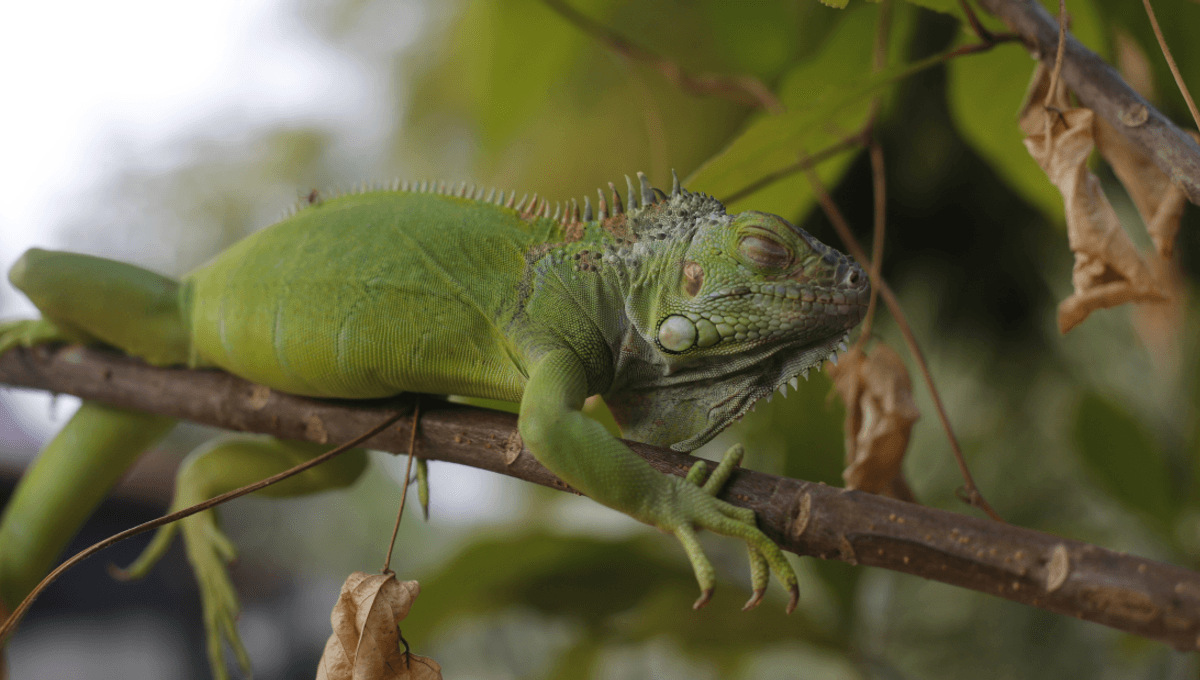
Floridians walking under trees might find that umbrellas aren’t quite cutting it this fall, as frozen iguanas rain from the sky with the arrival of cold weather. Iguanas were never meant to be a part of Florida’s ecosystems, but humans and our penchant for setting pets loose in the wild mean they’ve become established in their non-native home.
For much of the year, the Florida climate works just fine for these cold-blooded reptiles, but come fall, things get a bit chilly. Unable to regulate their temperature, the iguanas seize up and fall out of trees, to such an extent that places like Miami have started forecasting “iguana fall” like the weather.
Iguana fall is becoming frequently more familiar for Florida’s residents, as despite efforts to cull this invasive species their numbers continue to grow. Frozen iguanas look very dead, but they rarely are, so you should approach with caution if you come across one. Those teeth and claws can do some damage should the animal defrost enough to throw hands, as demonstrated by this cake-stealing iguana that bit a girl’s finger, triggering a mysterious illness.
What should I do with a frozen iguana?
If you find a frozen iguana, you can pop them in a secure bag or cat carrier and hand them over to a local wildlife center or veterinarian. Iguanas are invasive animals in Florida that spell big problems for the state’s native wildlife, so Florida residents are permitted to humanely kill any found on their land.
Euthanizing animals or letting “nature take its course” when it comes to the cold is a bitter pill to swallow for lovers of wildlife, but the harsh reality is that these animals have a catastrophic influence on local ecosystems. While it’s humans’ fault that they made their way to Florida, iguana fall is a seasonal reminder that these animals don’t belong here.
Can you eat iguanas?
As the “chicken of the trees” many have touted the invasivore solution for Florida’s iguana problem, using their meat for food in the same way humans have tried to control growing numbers of lionfish by eating our way out of the problem. If this appeals to you, it’s worth remembering that stocking up on a bunch of frozen iguanas can end poorly if you have a warm car, as demonstrated in this story told by Ron Magill of Zoo Miami to NPR.
“[T]his gentleman just thought, wow, I just have a bunch of protein here… He’s sort of picking up all these iguanas that appear to be dead on the road that had fallen out of trees… And he put them into his vehicle. He’s loading them up like he was stocking up for a big barbecue,” Magill said.
“When they went back into the vehicle, the vehicle warmed up, and those iguanas started coming back to life. And all of a sudden, they started getting up and running around in the car, and it caused an accident.”
Oh, and if you think hunting iguana for bounties is the way forward, need we remind you of the “Cobra Effect”?
Source Link: It's Raining Frozen Iguanas In Florida, Here's What To Do If You Find One